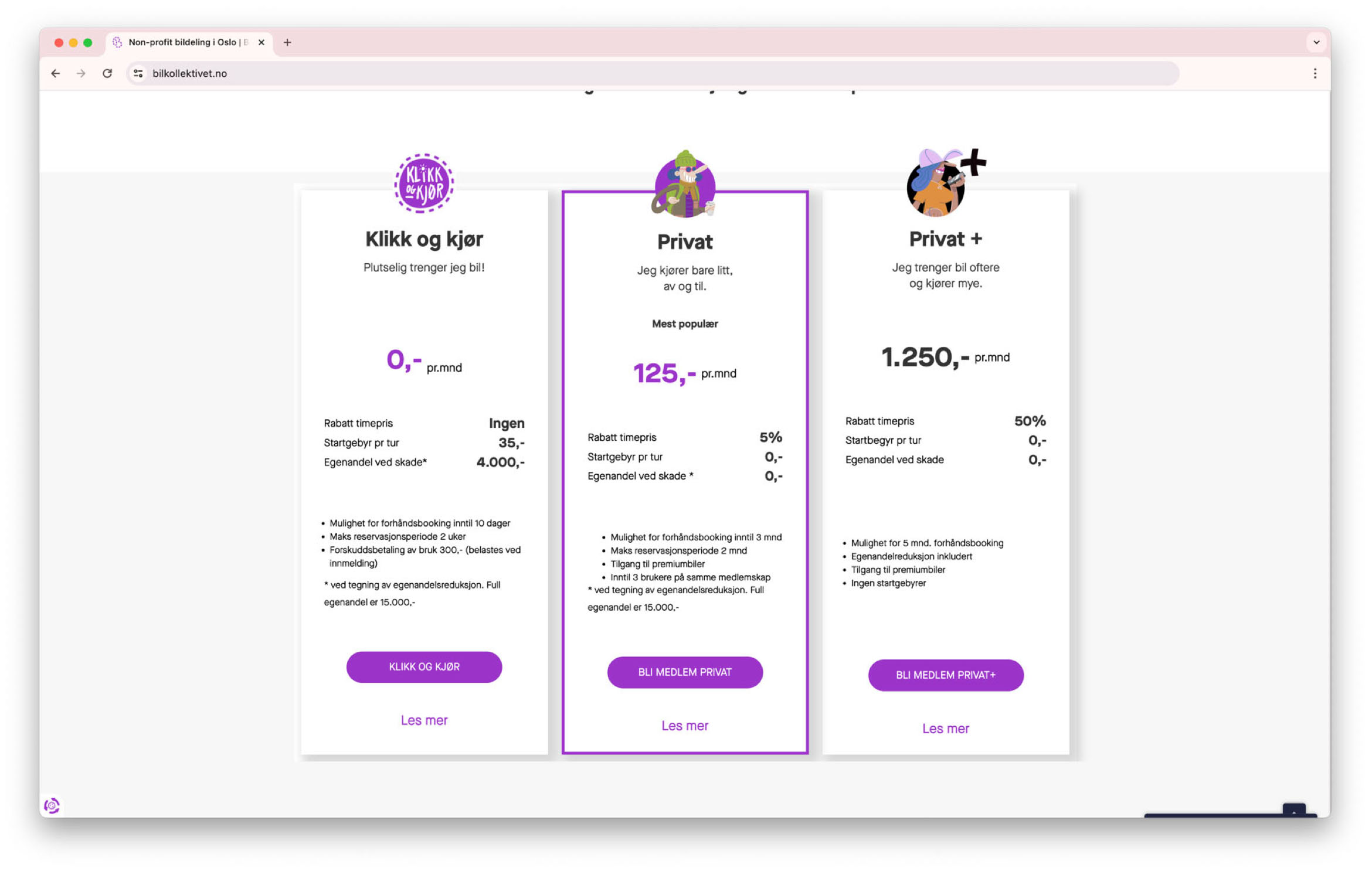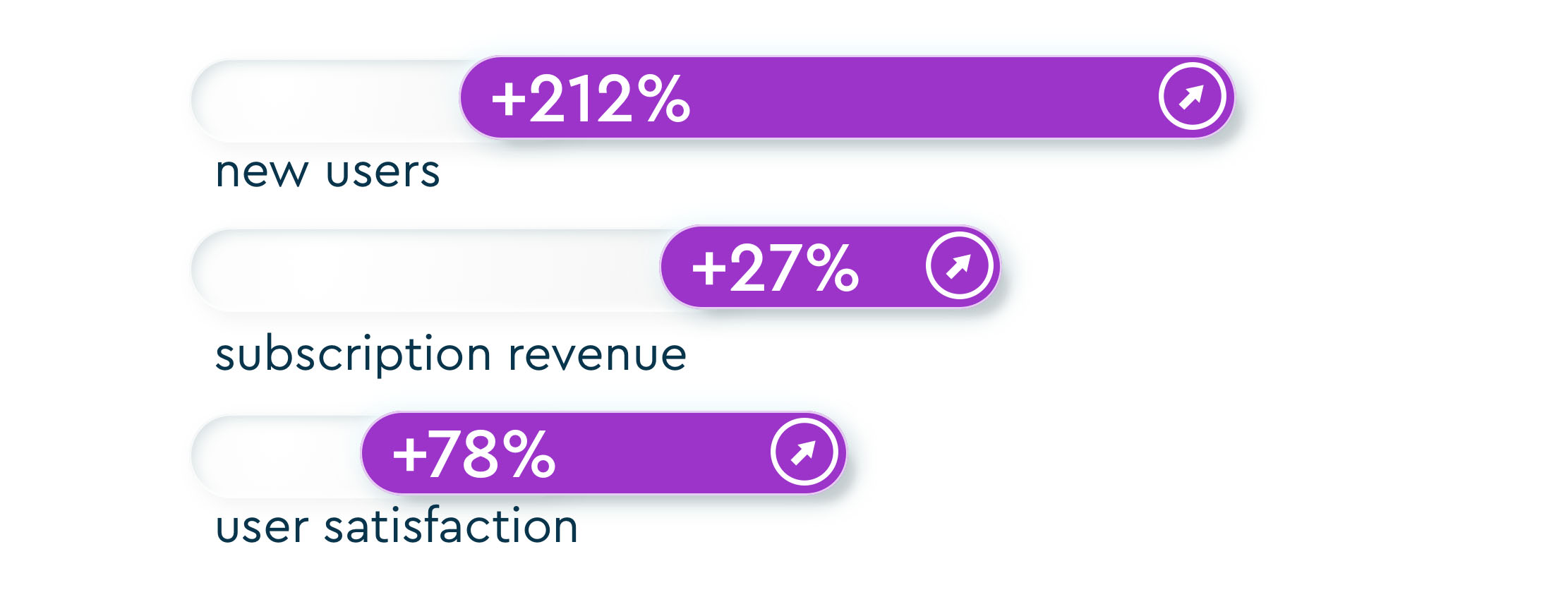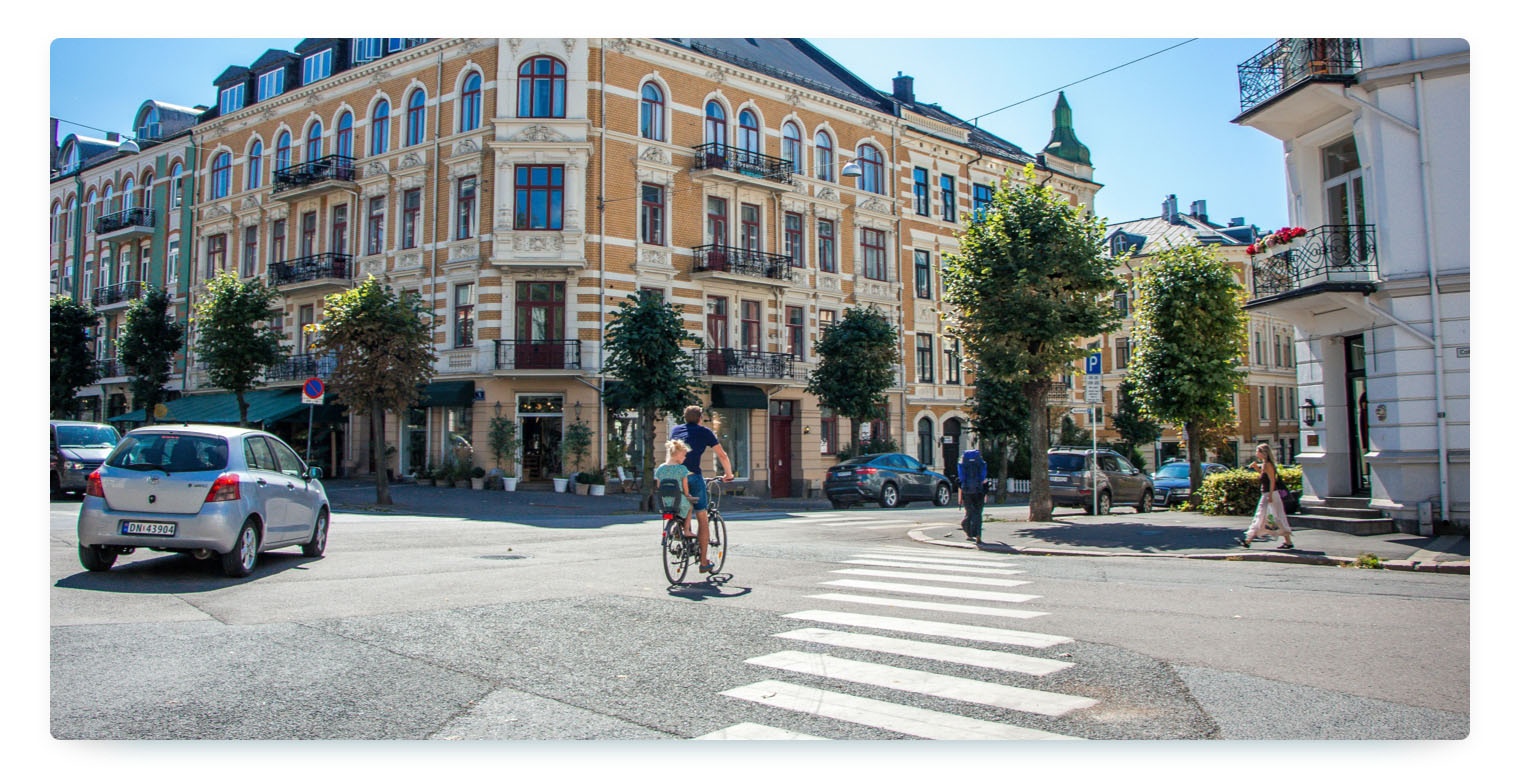
3 min read • January 30, 2024
A major challenge for many carsharing operators is that they are not in the black. But there are also profitable examples. The Norwegian provider Bilkollektivet has been profitable for years and continues to regularly increase its success.
Best Practice
Bilkollektivet, Norway’s leading car-sharing cooperative, owes its success to three key factors: a flexible subscription model tailored to different user needs, smart use of AI for fraud prevention, and strong support from Oslo’s urban policies that prioritize shared mobility over private car ownership.
Bilkollektivet offers station-based carsharing in Oslo and is the largest provider in Norway's capital and one of the largest in the country.
Organized as a cooperative, the core of the provider is not to make a profit, but to provide a sustainable alternative to private car ownership. Nevertheless, Bilkollektivet has been operating profitably for years - as the only provider in Norway.
On the one hand, of course, this is due to the need for profitability, as there are no investors. Profits are reinvested and used for the further development of the company.
However, this alone does not explain Bilkollektivet's success - especially not why it has continued to grow in recent years in terms of customer numbers, monthly revenue and customer satisfaction. This development is largely due to the following three factors.
Bilkollektivet is known for putting customers at the center of all decisions. Not least because they can also become co-owners due to the cooperative's structure.
Nevertheless, the Norwegian provider has served all customers with a one-size-fits-all offer for over 25 years - a standard set of tariffs, insurance and booking conditions. When competition on the car sharing market in Oslo became stronger a few years ago, Bilkollektivet increasingly began to question this approach.
After a comprehensive analysis of customer behavior, it was clear that "one-size-fits-all" no longer worked. Instead, Bilkollektivet introduced a subscription model. Since then, customers have been able to choose from three subscription options that differ in terms of tariffs, monthly basic fee and scope of services.
Reach more customers segments with a subscription model →

Over 50% of new customers now opt for one of the two options with a monthly basic fee. This is a major success factor for the provider: Basic fees mean recurring monthly income and offer more planning security than short-term sales. This makes Bilkollektivet less dependent on fluctuations in revenue due to weather, season and other influences on booking behavior.
Within the first 12 months of introducing the subscription model, income from membership fees increased by 27%, user numbers by 212% and customer satisfaction by 78%. The latter shows: a win-win for both sides.


Find out more in our detailed case study:
Like many shared mobility providers, Bilkollektivet has had to deal with a lot of fraud in the last two years. Damage or even theft of vehicles and payment defaults represent a huge risk for any sharing business.
To curb fraud, the provider has therefore developed a robot based on artificial intelligence (AI) that searches for certain patterns in new registrations and detects suspicious cases. The AI runs in parallel with the MOQO system and is connected to it via an API interface. Suspicious cases can thus be blocked immediately and prevented from making bookings and thus gaining access to the vehicles.
In the meantime, AI has almost stopped the cases of fraud and has made the company more secure again.

An API is an interface that can be used to link different systems together. This allows you to connect other expert tools, e.g. for data analysis, MaaS platforms, fleet management or accounting, with the MOQO platform and keep your data synchronized.
Oslo plays a pioneering role in Europe when it comes to car-free cities. For years, the city has taken numerous measures to make driving and car ownership less attractive. For example, a large number of parking spaces have been abolished and converted into parks, cycle paths and recreational areas. The aim is to improve the quality of urban life, and a pleasant side effect is the reduction in exhaust fumes in the air.
Oslo's attempts to ban cars from the city →

This political direction plays into the hands of carsharing providers such as Bilkollektivet. After all, it promotes the mindset among Oslo residents that owning a car is not worth it and that carsharing is the more sensible solution when needed. More and more people are opening up to this idea and becoming (potential) customers.
Furthermore, as a non-profit cooperative, Bilkollektivet is a popular cooperation partner for the city. For example, the city has granted the provider inexpensive and central parking spaces, which improves the visibility of the vehicles without increasing operating costs to the same extent.

What all the above reasons for Bilkollektivet's growing success have in common is that they show how the provider sees challenges as opportunities and is not afraid of change.
Focus on your customers and their needs, use modern technologies to your advantage and join forces with your local administration on the road to sustainable mobility. And: Look at other carsharing providers and seek contact to learn from each other.